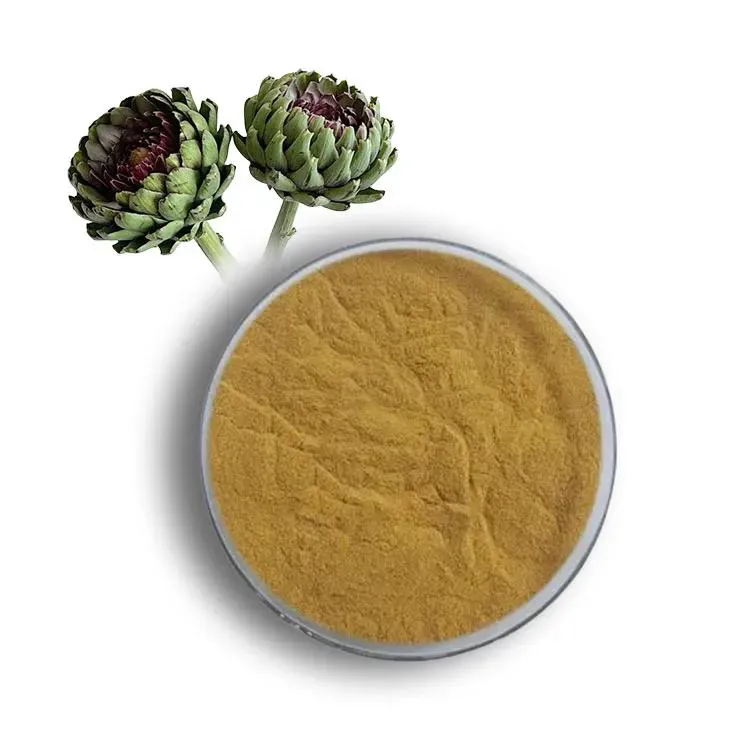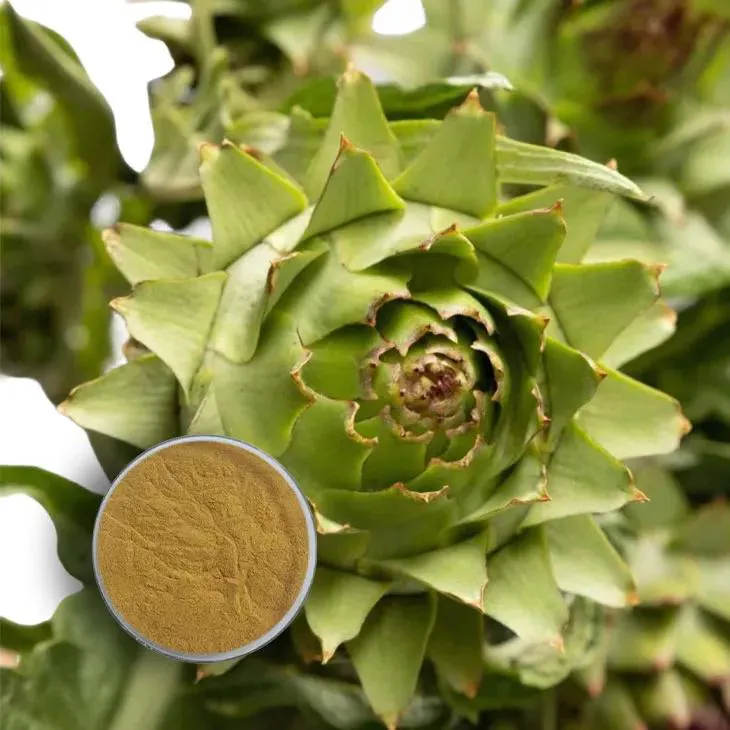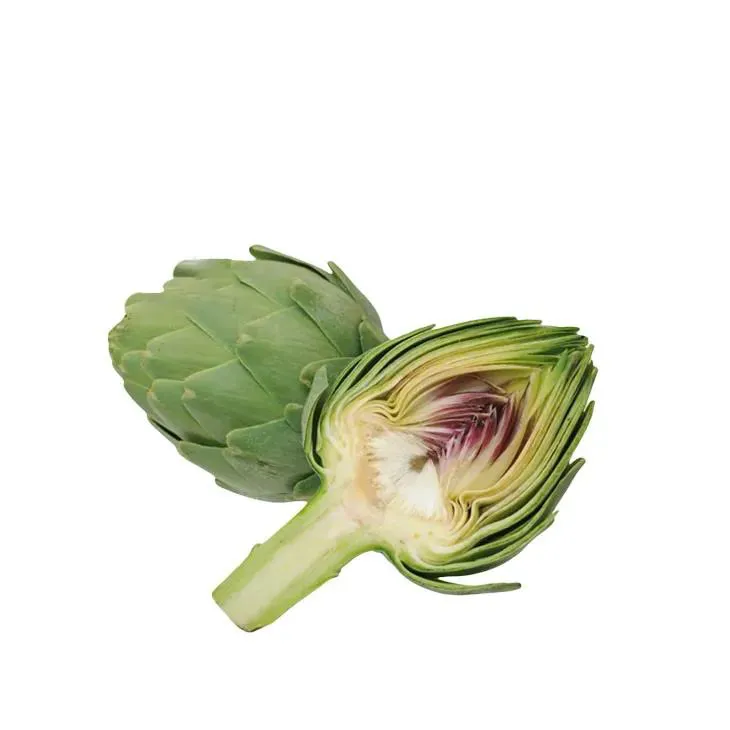- 0086-571-85302990
- sales@greenskybio.com
what is the best artichoke extract to take
2025-10-31

Artichoke‑leaf (and broader artichoke) extracts have gained considerable interest in the supplement world for their potential benefits in digestion, liver health, cholesterol management and more. However, for someone looking to “take an Artichoke Extract”, the number of options, varying doses, extract types and brands can be overwhelming. The key questions become: Which extract is best? What features should you look for? And what evidence supports one product over another? This article dives into those questions, with a focus on the criteria for “best”, how to evaluate Artichoke Extract products, and practical recommendations based on current evidence.
What makes a “best” Artichoke Extract?
Standardization and active compounds
One of the most important quality markers for any botanical supplement is standardization, i.e., that the extract has been processed so that it consistently contains a certain amount of one or more “active” compounds. In the case of artichoke extracts (typically derived from Cynara scolymus, the globe artichoke) compounds of interest include chlorogenic acid, caffeoylquinic acids, cynarin, luteolin glycosides, and other polyphenols.
When a product reports: “Artichoke Leaf Extract, standardized to 5% caffeoylquinic acids” or “500 mg extract per capsule, equivalent to X grams fresh plant”, that is a good indication of quality. Without such standardization, it’s hard to know what you’re actually getting. Some consumer‑oriented lists also emphasise standardized cynarin content.
Extract type, dosage and formulation
Different products offer different extract strengths, forms (capsule, tablet, liquid), and sometimes whole plant vs leaf vs root. When deciding “best,” you should consider:
How many milligrams of extract per dose. For example some high‑strength products might offer 1,200 mg or more per serving.
The equivalence to “fresh artichoke” (sometimes the label will state e.g., “equivalent to 7 g fresh artichoke”).
Whether the formulation is vegetarian/vegan, and whether the capsule includes excipients you’re comfortable with.
The recommended daily dose (in research, doses vary widely). For example, human studies have used 250 mg up to around 1,800 mg daily.
Thus a “best” extract would offer a clinically relevant dose, clear standardization, minimal unwanted additives, and a trusted form.
Evidence and safety profile
Another key dimension is evidence of efficacy and safety. A “best” artichoke extract is one backed by human data, with a safety record in the dose being used. Research shows artichoke‑leaf extract may help with digestion (dyspepsia), cholesterol/ lipid profile, liver protection/ bile production, and more. Safety information: artichoke extract appears “possibly effective” for certain uses according to reviews, with side‑effects typically mild (gas, upset stomach) in short‑term use of up to ~12 weeks.
In short: standardization + clinically relevant dose + safety = features of the “best” artichoke extract.

Which artichoke extract brands or products stand out?
Consumer reviews and third‑party testing
When looking at actual products, some stand out in consumer‑review lists based on quality, potency, transparency, and independent testing. For example, one review list calls out:
Toniiq Artichoke Extract (1,200 mg per serving, standardized to 5 % cynarin, 15 : 1 extract ratio, third‑party testing) as a “high strength” option.
Greenskybio Artichokes, made in China, scientifically extracted, suitable for vegetarians, long-term supply.
Matching product to your health goal
The “best” product for you may depend on why you want artichoke extract. Some common goals:
Digestive support/ dyspepsia: Moderate doses (~500 mg) of standardized leaf extract have been used.
Lipid/cholesterol support: Meta‑analyses show artichoke extract may reduce total cholesterol, LDL and triglycerides. For those goals, a product with clearly reported standardization and supporting evidence is important.
Liver/ bile support: Studies show artichoke extract has choleretic (bile‑stimulating) and hepatoprotective potential. If this is your focus, ensure the product is well‑standardized and used in studies.
Therefore, the “best” extract is one whose dosage, standardization and supporting evidence align with your objective, and whose brand you trust for quality.

What do human trials tell us about artichoke extract effectiveness?
Lipid profile improvements
A meta‑analysis combining 14 randomized controlled trials (RCTs) found that Artichoke Leaf Extract supplementation significantly reduced triglycerides (TG), total cholesterol (TC), and LDL‐cholesterol (LDL‑C) levels. Interestingly, no significant effect on HDL‑cholesterol was observed. This suggests artichoke extract may support cardiovascular risk factors, though it does not replace other treatments.
Another review notes that Artichoke Leaf Extracts act via multiple mechanisms: inhibiting cholesterol biosynthesis, supporting bile flow, and antioxidant/anti‑inflammatory actions.
Digestive and liver outcomes
In terms of digestion, older clinical studies in patients with functional dyspepsia found that artichoke leaf extract improved symptoms compared with placebo.
Regarding liver/bile, studies indicate that artichoke leaf extracts may stimulate choleresis (bile flow) and support liver‐cell health. For example, in one trial of 80 patients with metabolic syndrome, 1,800 mg daily of artichoke extract for 12 weeks decreased oxidized‑LDL (ox‑LDL) levels compared with placebo.
While promising, the evidence is not yet robust for all conditions, and many studies are short‑term.
What dose and duration have been studied?
Human trials vary widely in dose and duration. Some key points:
Doses in research range from a few hundred milligrams to ~1,800 mg daily.
Duration of use in many studies is 6–13 weeks, sometimes longer.
Because of this variation, when selecting a product, choosing one with a dose that aligns with the higher end of research (if your objective is lipid/liver benefit) may be prudent — provided safety is acceptable.
Thus, when asking “what is best”, you should aim for a product whose dose and standardization reflect the doses used in research.

Are there any safety concerns or things to watch?
Known side effects and contraindications
Artichoke extract appears generally well‑tolerated when taken for up to ~12 weeks in the doses studied. Side‑effects are typically mild: gas, upset stomach, loose stools. Because artichoke stimulates bile flow, caution is warranted for individuals with gallbladder disease, bile duct obstruction, or those prone to biliary colic. Also, individuals allergic to plants in the same family (such as daisies, sunflowers, chrysanthemums, and ragweed) may have cross‑reactions.
As with any supplement, it should not replace standard medical care, and individuals who are pregnant or breastfeeding, or those with serious liver or kidney disease, should avoid or seek medical guidance.
Quality, regulation, and brand integrity
One of the biggest risks in “best” supplement choice is variability in product quality. Because dietary supplements are less tightly regulated than prescription medications, two products labelled “artichoke extract” may differ significantly in active content, purity, and manufacturing standards.
Therefore, it is important to choose products with:
Third‑party testing or certification (e.g., USP, NSF, ConsumerLab)
Transparent labeling of extract ratio, standardization, active compound percentages
Good manufacturing practice (GMP) certification
Minimal fillers/undesirable additives
A “best” artichoke extract thus is not only about dose but about credible manufacturing and transparency.
Cost vs benefit, and no miracle claims
While artichoke extract shows promise, it is not a miracle cure. The benefits are modest and adjunctive, not replacements for lifestyle interventions or prescribed medications. As one commentary notes: “supplements should be considered only after consulting healthcare providers” and that good liver health often depends more on diet, exercise and avoidance of toxins than on any single supplement.
When evaluating brands, weigh cost against potency and standardization — paying a premium for unnecessary “extras” may not deliver proportionate benefit.
How should you choose and use an artichoke extract wisely?
Matching extract to your health goal
Start by clarifying why you want artichoke extract. For example:
If your goal is digestive support/ dyspepsia, choose a moderately dosed extract with leaf standardization (e.g., 500–600 mg) and a formulation you can tolerate.
If your goal is lipid/liver support, consider a product with a higher dose (e.g., 1,000 mg+ with clear standardization) backed by lipid profile data. Ensure your healthcare provider is aware.
Also check for interactions: for example, artichoke may affect bile flow and thereby impact absorption or metabolism of some medications.
Evaluate product quality
Select a brand that offers:
Clear labeling of extract strength, extract ratio (e.g., 15 : 1 meaning 15 parts raw plant volume to 1 part extract)
Standardization to active compounds (e.g., 5% caffeoylquinic acids, or 5% cynarin)
Third‑party testing (look for seals or batch reports)
Transparent manufacturing (GMP, vegan/vegetarian capsule if you prefer)
Reputation and consumer reviews (beware of exaggerated claims)
For example, the Toniiq and Jarrow Formulas products mentioned earlier reflect this standard.
Start conservatively and monitor
When using the extract:
Begin with the lowest dose consistent with research (often ~500 mg/day) and monitor.
Use for a defined period (e.g., 8‑12 weeks) then assess outcomes (lab lipid profile, liver enzymes, digestive symptoms, etc).
Monitor for digestive upset, allergy signs (rash, swelling), or gallbladder pain.
Combine supplement use with lifestyle measures (healthy diet, weight management, exercise) — supplements complement but do not replace these.
Consult your healthcare provider if you have underlying medical conditions, are pregnant or nursing, or take other medications.
Conclusion
So, what is the best artichoke extract to take? The “best” is not simply the most expensive or the highest mg, but the product that meets the following criteria:
Standardized extract with known active compound content
Clinically relevant dose (aligned with human research)
Trusted manufacturing and transparent quality assurance
Appropriate for your health goal, and used intelligently with monitoring
By focusing on these factors, you increase your likelihood of deriving benefit from artichoke extract while minimising risk.
Remember: an extract is a supplement — not a substitute for medical treatment or foundational health habits. If used wisely, an artichoke extract of premium quality and appropriate strength can be a useful adjunct in supporting digestion, liver/bile flow, or lipid metabolism.
Visit Greenskybio.com, a great article source where you can learn about Supplements and their health benefits, you also can get the latest food Supplements. Green Sky Bio provides the best extracts and supplements. It is a Chinese self-developed brand that is trustworthy! Welcome to email us to inquire about our products.
TAGS:- ▶ Hesperidin
- ▶ Citrus Bioflavonoids
- ▶ Plant Extract
- ▶ lycopene
- ▶ Diosmin
- ▶ Grape seed extract
- ▶ Sea buckthorn Juice Powder
- ▶ Fruit Juice Powder
- ▶ Hops Extract
- ▶ Artichoke Extract
- ▶ Mushroom extract
- ▶ Astaxanthin
- ▶ Green Tea Extract
- ▶ Curcumin
- ▶ Horse Chestnut Extract
- ▶ Other Product
- ▶ Boswellia Serrata Extract
- ▶ Resveratrol
- ▶ Marigold Extract
- ▶ Grape Leaf Extract
- ▶ New Product
- ▶ Aminolevulinic acid
- ▶ Cranberry Extract
- ▶ Red Yeast Rice
- ▶ Red Wine Extract
-
White Peony Extract
2025-10-31
-
Red Wine Extract
2025-10-31
-
Chia Seed Powder
2025-10-31
-
Acai Berry Extract
2025-10-31
-
Coconut Water Powder
2025-10-31
-
Citrus bioflavonoids
2025-10-31
-
Centella Asiatica Extract
2025-10-31
-
Honeysuckle Pollen
2025-10-31
-
Saponin Extract
2025-10-31
-
Cranberry Extract
2025-10-31





















